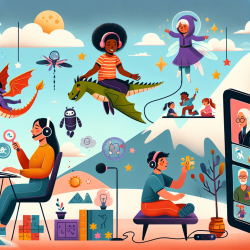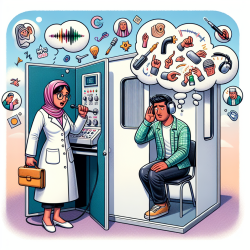Introduction
In today's digital age, misinformation spreads rapidly, influencing public perceptions and behaviors, particularly concerning vaccines. This is especially relevant during the COVID-19 pandemic, where misinformation has fueled vaccine hesitancy. A recent study titled "Online misinformation and vaccine hesitancy" highlights the detrimental effects of misinformation on vaccine uptake and provides insights into combating this issue. As practitioners, understanding and addressing these challenges is crucial to improving health outcomes.
The Impact of Online Misinformation
The study underscores that online misinformation significantly contributes to vaccine hesitancy. False information proliferates through social media, websites, and independent news outlets, often amplified by AI-driven algorithms. This misinformation can decrease pro-vaccine opinions, leading to lower vaccination rates and a resurgence of vaccine-preventable diseases.
For practitioners, recognizing the role of misinformation in shaping public attitudes is vital. Engaging with patients to discuss the importance, safety, and efficacy of vaccines, while providing them with reliable sources, can help counteract the effects of misinformation.
Strategies for Practitioners
- Educate and Inform: Regularly update your knowledge about vaccines and share this information with patients. Use simple language to explain complex concepts, making it easier for patients to understand and trust the information.
- Engage on Social Media: Actively participate in social media discussions to correct misinformation. Use language that appeals to undecided individuals, providing factual information to counter false claims.
- Leverage AI Tools: While AI is part of the problem, it can also be part of the solution. Encourage the development and use of AI tools that identify and respond to misinformation, helping to curb its spread.
Encouraging Further Research
The study calls for further research to identify effective messaging strategies that resonate with vaccine-hesitant individuals. Developing digital tools to detect and eliminate misinformation is also crucial. As practitioners, staying informed about ongoing research and advancements in this field can enhance your ability to address vaccine hesitancy effectively.
Conclusion
Online misinformation is a significant barrier to vaccine uptake, but practitioners can play a pivotal role in mitigating its effects. By educating patients, engaging in public discourse, and supporting research, practitioners can help foster a more informed public, ultimately improving vaccination rates and health outcomes.
To read the original research paper, please follow this link: Online misinformation and vaccine hesitancy.










